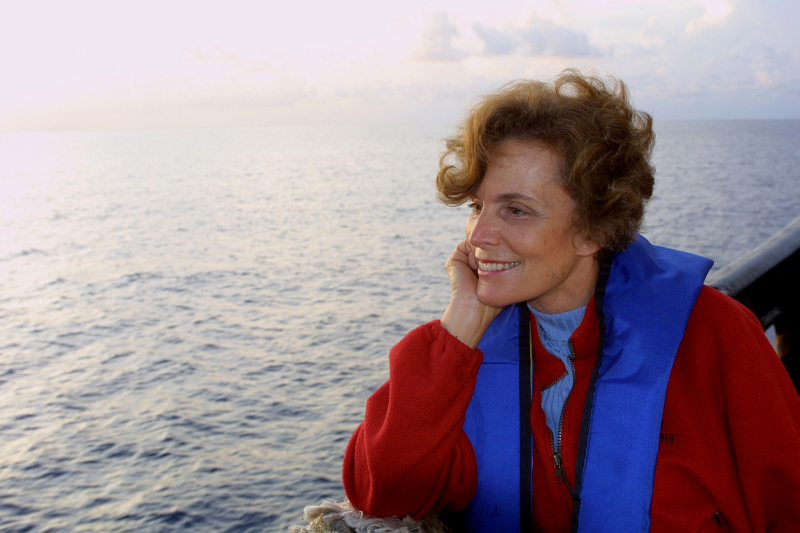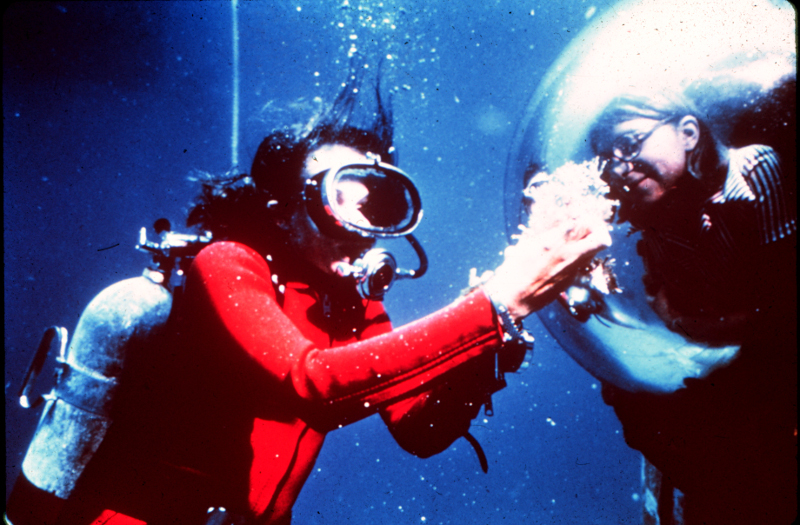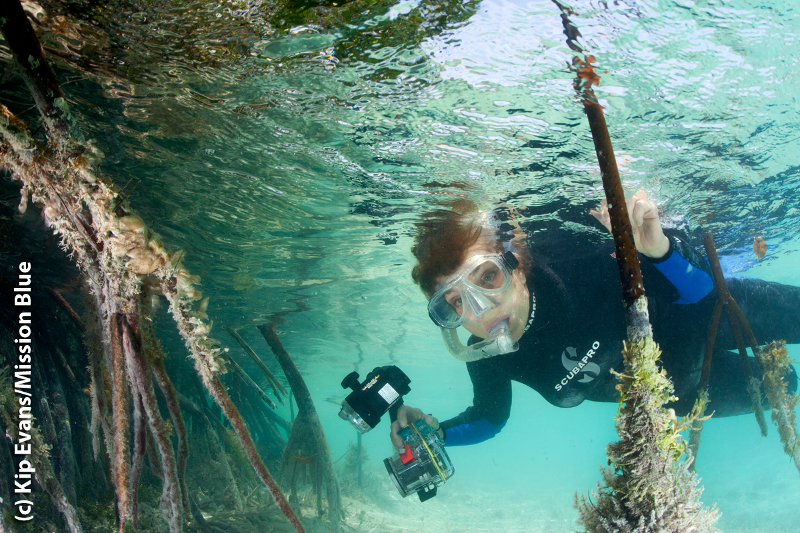Men may outnumber women in the scuba diving community, but what we lack in quantity we make up for in quality. This series examines the remarkable achievements of famous female divers, and the contributions that they’ve made to numerous fields, including science, technology and conservation. We begin with Dr. Sylvia Earle.
Dr. Sylvia Earle
Often referred to reverently as “Her Deepness,” Dr. Sylvia Earle is a shining example of the dizzying heights that female scuba divers can achieve. Earle graduated in 1955 from Florida State University with a Bachelor of Science degree, a qualification compounded 11 years later with a master of science and a doctorate of philosophy from Duke University. Although her background is in science, Earle is renowned today not only for her contributions to that world, but also as an influential conservationist, oceanographer, author and explorer.
She is also one of the greatest pioneers of the scuba diving world, often listed alongside legends like Jacques Cousteau as someone who has pushed boundaries to change the face of our sport forever. To date, she’s received more than 100 prestigious awards recognizing her environmental work and no fewer than 25 doctorates, as well as breaking several scuba world records. Earle also served as the first female chief scientist for the National Oceanic and Atmospheric Administration (NOAA), between 1990 and 1992.
Shortly after graduating from Duke, Earle made her first major contribution to marine research, while simultaneously acting as an inspiration for female divers worldwide. In 1970, she led an expedition comprised of four scientists and one engineer, all women, to the underwater laboratory Tektite II. The missions to the laboratory studied the effects of teamwork in enclosed environments, among other things, and were sponsored in part by NASA. Earle’s fascination with submarine exploration continued into 1979, when she set a human depth record off the coast of Oahu, Hawaii.
Using an atmospheric diving suit designed to maintain internal pressure at one atmosphere (known as a JIM suit), Earle successfully dove to 1,250 feet (381 meters), securing herself a place in the history books. In 1986, she tied the existing world record for solo diving in a submarine, reaching 3,280 feet (1,000 meters) in Deep Rover, a research vessel produced by Deep Ocean Engineering. Even more impressively, Earle was herself involved in the creation of Deep Rover, having founded Deep Ocean Engineering Research (DOER) with her husband, engineer Graham Hawkes, in 1982.
Earle and DOER remain at the forefront of marine engineering. The deep-sea research equipment created and operated by DOER is used not only for scientific purposes, but also to promote marine-conservation initiatives. In 1999, the company’s DeepWorker 2000 submersible was used to quantify fish species living within the boundaries of the Stellwagen Bank National Marine Sanctuary. Earle has also dedicated much of her time and effort during the latter part of her career to marine conservation. She has been a National Geographic explorer-in-residence since 1988, and in that capacity led the Sustainable Seas Expeditions between 1998 and 2002, in order to study United States national marine sanctuaries.
Most notably, Earle is the founder of Mission Blue, a marine conservation organization that she created with winnings in 2009 when she won the TED Prize, which recognizes individuals with the vision to change the world for the better. Since 2009, Mission Blue has been responsible for establishing 57 Hope Spots worldwide, which may play a large role in the future of marine conservation. Meant to ignite public support for a network of marine protected areas large enough to restore the health of the ocean, each Hope Spot is located somewhere considered vital to marine conservation — perhaps because it represents a critical habitat, perhaps because it supports an exceptional level of marine biodiversity, or perhaps because it acts as a haven for a threatened species of flora or fauna.
Most importantly, these Hope Spots are designed to facilitate public involvement by making marine conservation the prerogative of all members of society, rather than the sole responsibility of scientists and policy-makers. For her contributions to conservation, to diving, and to scientific knowledge, Earle was inducted into the National Women’s Hall of Fame in 2000.
Now 79 years old, Dr. Sylvia Earle’s astonishing career may seem like a tough act to follow, but in reality, her commitment and tenacity should serve as inspiration when it comes to protecting the ocean, proving that there’s no limit to what can be achieved — by divers, by women, or by humanity.




